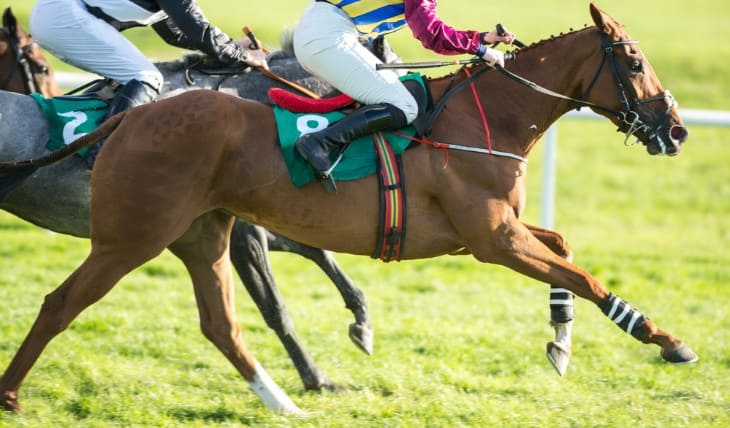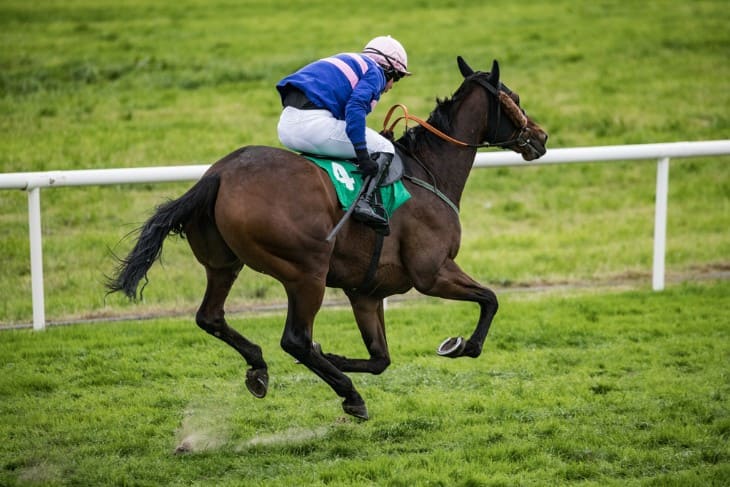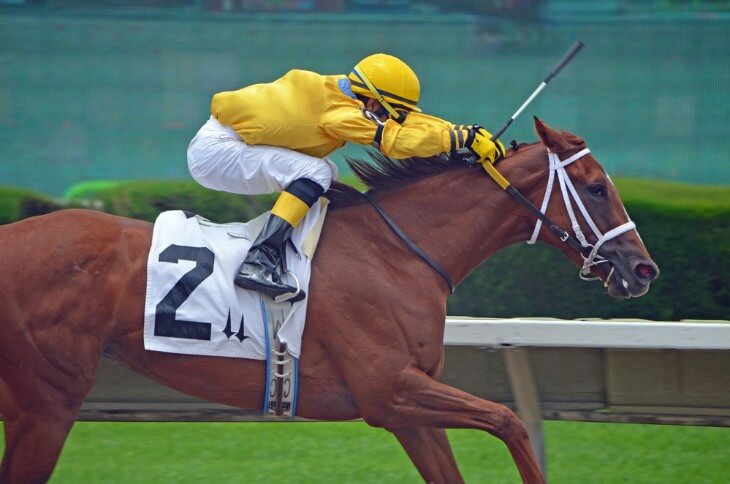- The Vital Role of Jockeys in Modern Horse Racing
- The Art of Becoming a Jockey: Training and Skills
- Physical and Mental Demands: Preparing for the Race
- The Responsibilities of a Jockey: Beyond Riding
- Strategic Approaches: Understanding Race Tactics
- Navigating Obstacles: Jockeys and Jump Racing
- Working in Harmony: The Jockey-Horse Relationship
- The Impact of Jockeys on Race Outcomes
- Conclusion
The Vital Role of Jockeys in Modern Horse Racing
Today’s professional jockeys are far more than passengers atop thundering steeds. They are strategists, diplomats and athletes fused in unity with their equine partners. Success demands extensive race knowledge, split-second decision-making, extreme mental and physical fitness and harmonious communication with high-strung thoroughbreds.
A jockey's expertise goes beyond just riding. They must intimately understand racetrack nuances, interpret weather patterns, analyze the field and determine race pace. Despite tight weight restrictions, jockeys require incredible core and leg strength to control powerful horses weighing over 1000 pounds as they barrel down the homestretch at 40 mph.
- Jockeys typically start riding by age 5-10, progressing from ponies to thoroughbreds during a 7+ year apprenticeship before becoming professionals. This early exposure builds an intuitive partnership with horses.
- Female jockeys face additional barriers trying to break into the male-dominated world of horse racing as they fight stereotypes doubting their physical capability.
- Jockeys suffer injury rates double that of football players and face life-long health issues like wasting from extreme weight manipulation and devastating concussions from falls.
- Top jockeys can earn millions annually but most struggle to piece together a living from meager race fees and maintain viability while battling injuries.
The Art of Becoming a Jockey: Training and Skills
Aspiring jockeys begin intensive training as young as age 7-10 when their small, lightweight frames offer physical advantage. Formal programs provide instruction on horsemanship, racing rules and tactics while students develop balance riding galloping horses. Core skills include seamless posture and rein handling that communicates clearly and subtly with mounts.
Jockeys meticulously manage weight through strict dieting and sweating since most races have 115-125 pound weight allowances. Dehydration from sweating leaves jockeys depleted yet they must maintain muscle strength to handle hardy thoroughbreds. Sports psychologists help jockeys sharpen mental skills to sustain focus amid chaos for the 8-10 minutes it takes to complete a race.
- Prospective jockeys often relocate to established "colonies" near major racetracks which offer immersive training under veteran jockey mentors.
- Jockeys only spend about 5 total minutes daily racing at top speeds yet their victories depend on those brief, intense periods.
- Danger of catastrophic injury means jockeys must be brave, skilled and quick-thinking to navigate unexpected situations during breakneck speed races.
- Master jockeys keenly understand each horse's personality and need - some need patience while others require aggressive riding to perform at their peak.

Physical and Mental Demands: Preparing for the Race
In the days and hours leading into high-stakes races, jockeys meticulously prepare their bodies and minds. Rigorous cardio builds the vascular system to supply oxygen efficiently to muscles for endurance. Jockeys also strength train their core, arms and legs to maintain iron grips and control over powerful, speeding horses.
Mental preparation utilizes techniques like visualization and meditation to sharpen focus. Jockeys methodically strategize by reviewing past race footage and data for opponents’ horses as well as studying their assigned mount’s tendencies. Race plans must adapt to variables like weather, post positions at the gate, and the day’s track conditions.
- Dehydration from sweating before weigh-ins leaves some jockeys temporarily mentally confused until they can properly rehydrate.
- Travel between racetracks means jockeys spend extensive time alone which can be mentally taxing.
- Custom molding race saddles to a jockey’s contours helps secure the ideal aerodynamic riding posture.
- Some jockeys utilize neurofeedback technology and oxygen restriction training to maximize fitness gains ahead of races.
The Responsibilities of a Jockey: Beyond Riding
A jockey shouldering the weight of race expectations must fill multiple roles beyond riding. They assume significant responsibility for their mount’s health and race readiness by collaborating with trainers on fitness regimens and reporting on progress adapting to rigorous training.
Meticulous race planning happens through strategy meetings between jockeys, trainers and owners analyzing variables influencing outcomes. Jockeys offer valued perspectives on horses' idiosyncrasies and race dynamics based on riding experiences. After races, jockeys provide detailed feedback to help fine-tune training and tactics for improvement.
- Congress passed the Horse Racing Integrity and Safety Act in 2020 which appointed jockeys to committees overseeing racetrack safety and medication rules.
- Jockeys regularly visit young fans in hospitals and schools to discuss race strategy while serving as ambassadors generating interest in horse racing.
- Weight management struggles mean jockeys often serve as mentors to apprentices, offering nutritional and mental health guidance during demanding training.
- Jockeys invest extensive time practicing and discussing race strategy using simulators that project lifelike virtual races.
Strategic Approaches: Understanding Race Tactics
Victory depends greatly on a jockey’s ability to strategically position their mount. Initial placement acquiring clear running room is critical before gradual acceleration to the front. Each second-long decision must weigh variables like track layout, turf conditions and other horses’ running styles to gain any narrow advantage.
Finding the zone between pushing too hard early and moving too late requires judgment and timing. Master jockeys carefully assess pace and waiting for moments to deftly maneuver through traffic into open space without breaking momentum. Aggressive moves may intimidate competitors into poor decisions. Saving ground on the rail saves vital distance but can trap horses. final bursts test will and nerve on both sides of the reins.
- Allowing a fast early pace to develop then catching front-runners as they tire is a common winning tactic.
- Prominent horses tend to break from the starting gate more alertly, gaining immediate positional edge.
- Various whip regulations now limit aggressive striking severely penalized for excessive or improper use.
- Finding holes between rivals when making moves tests jockeys’ split-second decision-making under immense pressure.
Navigating Obstacles: Jockeys and Jump Racing
Jump racing over dangerous hurdles and obstacles demands extraordinary courage and skill from jockeys. The artistry of a horse and jockey in perfect sync leaping cleanly over imposing fences captures imaginations worldwide. But fears remain about risks incurred by forcing horses over intimidating barriers under such extreme duress.
Navigating varied fence types and trajectories requires jockeys instinctively adapt approaches while maintaining precision and timing. Jump racing jockeys build physical durability to withstand extreme impacts from take-off and landings. Their ability to recover from errors mid-race and avoid calamity for horse and rider leaves onlookers breathless.
- Women jump jockeys face even greater challenges entering the male-dominated jump racing ranks where they must prove their mettle.
- Advanced safety vest technology helps protect jockeys from devastating trauma during falls.
- Ireland boasts a rich culture and history around jump racing with the famous national Grand National Hunt Festival held at Fairyhouse annually.
- Australia and the United States feature less prominent jump racing circuits compared to Europe and Britain where the sport reigns supreme.

Working in Harmony: The Jockey-Horse Relationship
A horse and jockey share a relationship built on communication, trust and intuition. Like a secret language, subtle cues conveyed through gentle handling of reins and shifting bodyweight guide horses. This connection stems from dedication understanding horses’ personalities and tailoring approaches to suit them.
Jockeys carry responsibility for horses’ wellbeing by closely monitoring their health and psychological state. Performance suffers if discomfort or distress occurs. Protecting horses from harm supersedes competitive drive so jockeys must pull up if injuries emerge. This interspecies partnership grounded in mutual reliance and respect allows transcendent performances.
- Retired champion horses sometimes refuse to perform with any jockey except their original rider with whom they share a deep bond.
- Jockeys often visit young or aging horses they once rode to maintain connection through treat giving and grooming.
- When trusted jockey partners switch mounts, inside intelligence they share about horse tendencies give them strategic advantage.
- The Jockeys’ Guild offers health services and financial support to jockeys unable to work due to injuries sustained while riding.
The Impact of Jockeys on Race Outcomes
A jockey’s role influencing race outcomes cannot be overstated - their strategic decisions and partnership with horses can make or break victories. Elite jockeys like Mike Smith and John Velazquez amplify champions like Justify and Always Dreaming from great to legendary. Masterful riding has stolen triumphs from superior horseflesh.
Tactical positioning early often prevents being trapped by the herd and unable to unleash finishing kicks. Saving ground while tracking closely to dueling front-runners conserves energy for late surges. Aggressive whipping remains controversial but well-timed urging can sometimes extract winners in thrilling finishes. And jockeys must overcome unforeseen trouble like traffic, loose horses or lost shoes to still prevail.
- Legendary jockey Laffit Pincay Jr. credits his record 9,530 career wins largely to decision-making and timing rather than pure athletic talent.
- Lesser-known jockeys can gain insurmountable advantage utilizing strategic advantage against complex fields that cause turmoil for favorites.
- Famed jockey Chris McCarron bred and owned thoroughbreds after retiring and leveraged his vast race knowledge training them into champions.
- Jockeys race each day but might only gain actual winning rides a few times a week, making decision-making during those sparse opportunities even more pivotal.
Conclusion
Jockeys occupy rarefied air as both courageous athletes and consummate strategists fused in unity with equine partners. Their role evolving in step with horse racing’s history now sees them recognized as skilled professionals. The destination awaits at the end of those fleeting two minutes hurtling around the track. But the journey sweeps jockeys through years of preparation ultimately measured in brief moments showcasing supreme dedication to their craft. When mounts and riders become as one, they can surpass limits in pursuit of glory.








